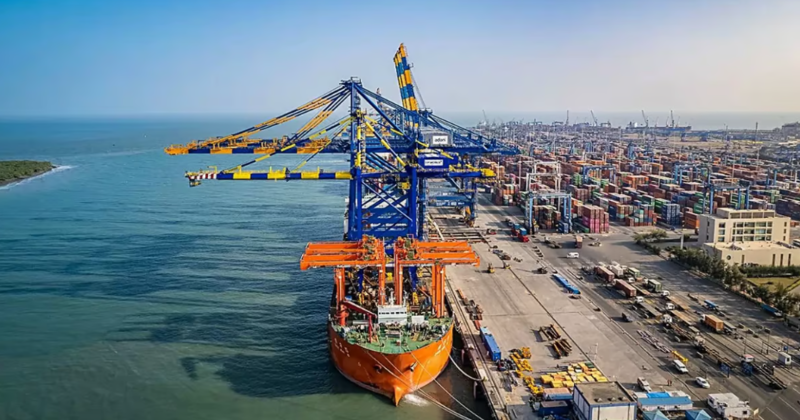This post was originally published on 3rd party site mentioned on the title ofthis site

It would be an understatement of first order to say that Pakistan’s economy is not doing well as it is actually in the ICU of IMF (International Monetary Fund). At present, if it has not collapsed and gone down on its knees, IMF alone can be credited with providing it with the necessary sustenance. Amid these challenges, the shifting of the Afghanistan transit trade away from Pakistan has added to its woes.
For decades, Afghanistan used Pakistan territory to reach Wagah-Attari border, or Karachi and Gwadar ports for exporting its fruits and other products to India and elsewhere. This trade has almost come to a halt during the last five years due to a host of issues. At Wagah, Pakistan allowed Afghan trucks to unload goods but on their return journey these trucks could not take any Indian goods. For this, they had to look around in Pakistan territory for Pakistani goods they could take back to Afghanistan.
This was something that increased costs of goods for Indian traders and Afghan truckers were unable to offer them good rates for transportation. Trade through Iran via Chahabar was an alternative that suited both Afghanistan and India. Over a period of time, Afghanistan started sending its shipments to outside world, including India, via the Chahabar port route and no official announcements were made.
Less than a month ago, Indian Union Minister Sarbanand Sonowal visited Chahabar, and everything has become official now. It is said that India is investing heavily in the development of Chahabar, much to the annoyance of Pakistan. Due to support from Iran and India, Afghanistan is now on the verge of shifting its entire transit trade away from Pakistan. According to many reports in Pakistani newspapers, at least 70 per cent of Afghanistan transit trade has stopped using Pakistani territory.
A report in The Friday Times blamed the Pakistan government decision taken a year ago to impose a processing fee on transit trade items imported under the Afghan transit trade agreement. This order was issued by the Customs Department and the new tax was calculated at 10 per cent ad valorem (based on value of goods). It had to be paid in advance before commercial goods were allowed to enter Afghanistan via Pakistan.
Islamabad’s stated aim was to discourage smuggling and putting a robust tax regime in place to enhance its revenues. Several traders from Pakistan as also Afghanistan warned that this 10 per cent tax would prove to be dampener and discourage trade. Around the time this tax was imposed, Islamabad also ordered the expulsion of around 17 lakh Afghans from the country saying they were all illegal.
These two things together were interpreted by the Taliban regime in Kabul as signalling by Pakistan that it didn’t take care much for Afghans. In March this year, a new elected government headed by PML-N leader Shehbaz Sharif took office in Pakistan. In an attempt to repair frostiness in relations, Sharif’s government sent a delegation headed by Federal Commerce Secretary Muhammad Khurram Agha to Kabul to hold talks. Afghan Commerce Minister Nooruddin Azizi held talks with the Pakistani delegation pointing out many hurdles Afghan traders faced in Pakistan.
In October 2010, Pakistan and Afghanistan signed an agreement for the Afghan-Pak Transit Trade Agreement (APTTA). However, in October 2017, then President of Afghanistan Ashraf Ghani announced that “The Afghanistan and Pakistan Transit Trade Agreement (APTTA) has expired”. Between 2017 and 2024, the transit trade between the two nations continued without any formal framework or agreement. It seems to have reached a dead-end and may wither altogether.




